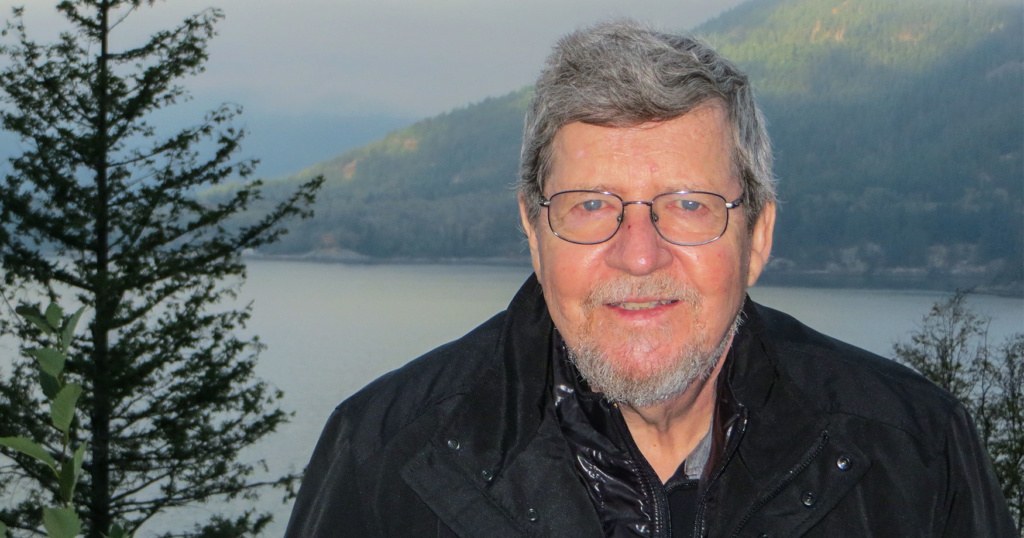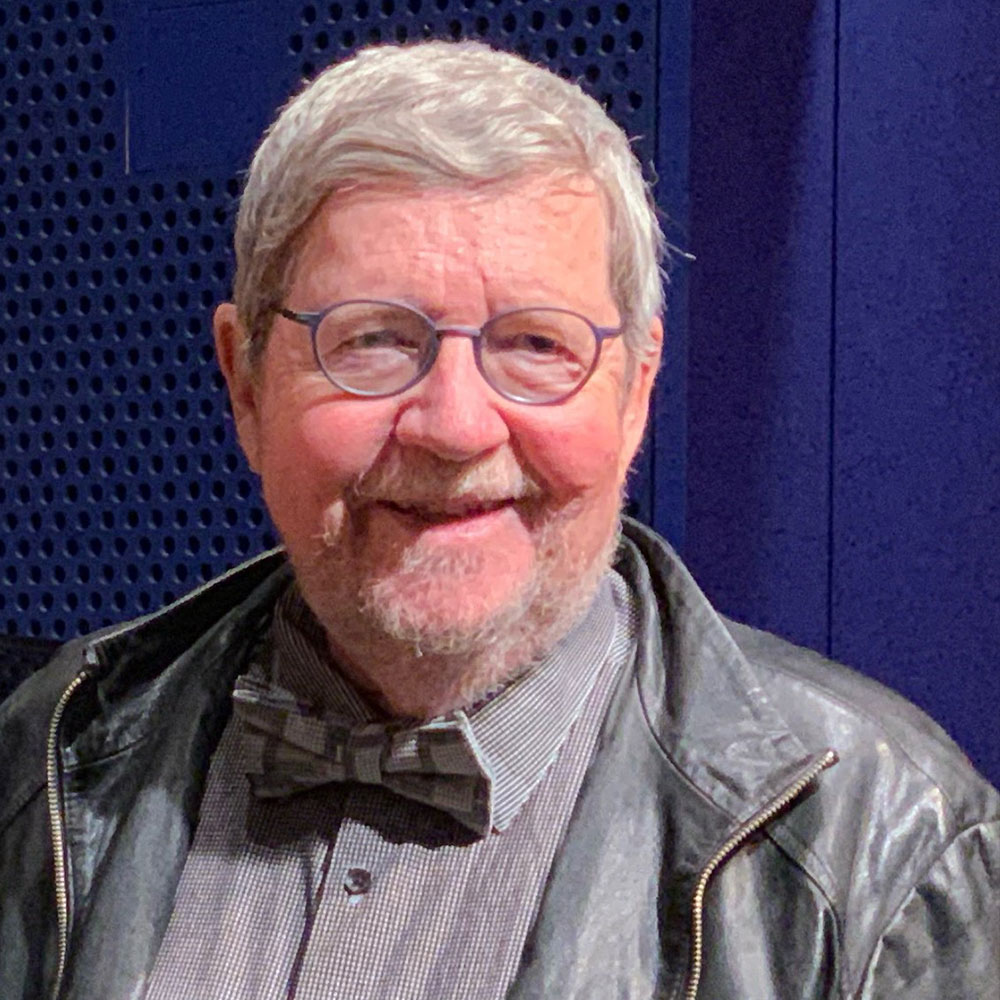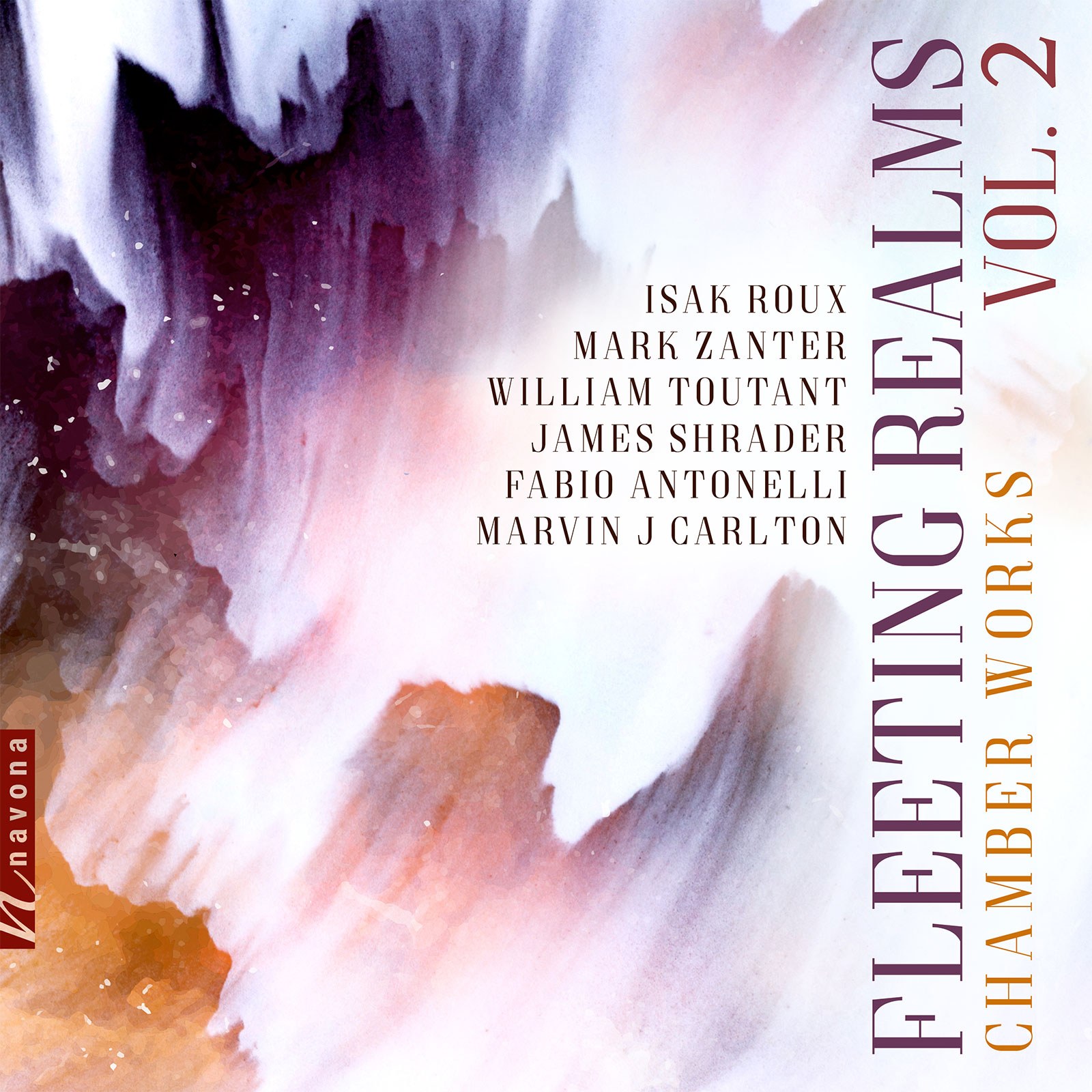
Even the briefest moments can burn themselves into memory, inspiring feelings that last a lifetime. On FLEETING REALMS VOL 2, works in chamber settings tap into our innermost thoughts and emotions, stirring the senses and sparking imagination. Included in this album is composer William Toutant’s Remembrance, a piece written in reaction to the Cambodian Genocide memorials in Phnom Penh.
Today, William is our featured artist in “The Inside Story,” a blog series exploring the inner workings and personalities of our composers and performers. Read on to learn about William’s affinity for betting on horse races, and why he believes an album’s first piece is its most important…
Who was your first favorite artist growing up?
While I was growing up, I loved music and read biographies of composers. The first living musician I came to admire was Leonard Bernstein. I eagerly awaited each broadcast of his “Young People’s Concerts.” Although at the time I had no inclination to make music a career, I admired Bernstein’s insight and ability to explain music. I tried to emulate his clarity when I became a music professor.
When did you realize that you wanted to be an artist?
I came to this decision very late, too late in my opinion. I never played a musical instrument until I was 10. That instrument was the accordion because my parents could not afford a piano. Later in high school I did take piano lessons. My first major in college was International Affairs, and I was very active on the debate team. In my sophomore year I began to realize that I loved debate, but did not love what I was studying, and had no interest in pursuing a career in law — the logical step after being a debater. My dorm was near Constitution Hall in Washington DC and I frequently attended concerts by the National Symphony and visiting orchestras and artists. One evening, after listening to a performance of Schubert’s great C-Major Symphony on the radio, I decided to pursue what I loved full-time. I quit the debate team and became a music major.
What is your guilty pleasure?
I love betting on thoroughbred horses. Until the lockdown caused by the pandemic, I spent Friday evenings studying past performances and every Saturday playing several thoroughbred tracks. Since the odds are set by the bettors, I am playing against everyone else. It is a great feeling when I play a winning horse that most other players have ignored.
If you could instantly have expertise performing one instrument, what instrument would that be?
The most useful instrument for me is piano. Since I began studying piano so late — age 15 or 16 — I never mastered it. My piano teachers understood that I needed to be able to use it as a tool rather than become a real performer. For that reason, I suppose my answer would be piano. One teacher suggested that I study several standard instruments to understand how they work and what they do. I studied violin and clarinet. I also served as assistant conductor in two community orchestras. That position involved little conducting, but I often played percussion — usually bass drum or cymbals — when the part required little more than the ability to count. This also saved the music director the expense of hiring a real percussionist to play a simple part!
What was your favorite musical moment on the album?
I’m adding the following clause to the question: “Other than your own piece.” Having had single pieces on several anthology albums, I think the first piece on the album is very important. It can encourage the listener to keep listening to the album, or make the listener hit the stop button and eject the disk. Isak Roux’s Piano Trio No. 1 is an excellent album opener. I think the opening gesture of the first movement — “Scenes from the Boulevard” — is very arresting and makes one curious about the rest of the album. Since my piece is third on the album, I appreciate the effect this piece has.
Is there a specific feeling that you would like communicated to audiences in this work?
As I write in the program notes, Remembrance was stimulated by visiting the Tuol Sleng Genocide Museum and the Choeung Ek “Killing Fields” in Cambodia, especially seeing the memorial stupa at Choeung Ek with the skulls on view of more than 5,000 individuals who were executed there. It was very disturbing to see that many of the skulls still show signs of the trauma they suffered before execution. The skulls are all nameless; they are arranged by gender and approximate age. Yet, each was a living, breathing individual. I don’t have words to express what I felt. I hope that the piece expresses the feelings that words cannot.
Explore William’s Latest Release
FLEETING REALMS VOL. 2
FLEETING REALMS VOL. 2 is available now from Navona Records. Click here to visit the catalog page and explore this album.

William Toutant was born in Worcester MA. He received his B.A. and M.A. from George Washington University and his Ph.D. in music theory and composition from Michigan State University. He joined the music faculty of California State University, Northridge in 1975. During the next 38 years he not only taught in the Department of Music, but he also served in a variety of administrative positions including Dean of the Mike Curb College of Arts, Media, and Communication.

